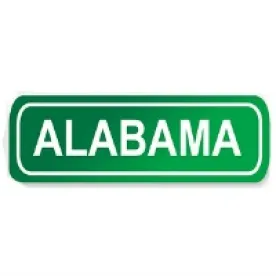On New Year’s Day, the State of Alabama began enforcing a regulation that directly challenges a cornerstone of state sales tax law and policy. If the regulation is upheld, it could open the floodgates for other states to require out-of-state sellers to collect sales and use tax.
Alabama Regulation 810-6-2-.90.03, which applies to transactions occurring on and after January 1, 2016, requires certain out-of-state retailers to collect Alabama sales tax on sales of tangible personal property into Alabama, even if the retailer lacks a physical presence in the state. The regulation contradicts Quill Corp. v. North Dakota, 504 U.S. 298 (1992), in which the Supreme Court held that a state cannot impose use tax obligations on an out-of-state business unless the business has a physical presence in the state.
Under the Alabama regulation, an out-of-state seller that lacks a physical presence in Alabama but makes retail sales of tangible personal property to state residents must collect and remit Alabama sales tax if it has a “substantial economic presence” in Alabama. An out-of-state seller has a substantial economic presence if its retail sales in Alabama during the prior calendar year exceeded $250,000, and the seller conducted any one or more of certain enumerated activities described below. In addition to the traditional ways of establishing physical presence in a state (e.g., having an office, warehouse or retail store in the state; retaining employees, salesmen or independent contractors in the state), the regulation would treat a business as having substantial economic presence in Alabama if it engages in any of the following activities:
-
Soliciting orders for tangible personal property by means of advertising disseminated primarily to consumers in Alabama and only secondarily to bordering jurisdictions;
-
Soliciting orders for tangible personal property by mail, if the solicitations are substantial and recurring and if the retailer benefits from any banking, financing, debt collection, telecommunication, or marketing activities occurring in Alabama or benefits from the location in Alabama of authorized installation, servicing, or repair facilities;
-
Soliciting, pursuant to a contract with a cable television operator in Alabama, orders for tangible personal property by means of advertising which is transmitted or distributed over a cable television system in Alabama;
-
Soliciting orders for tangible personal property by means of a telecommunication or television shopping system which is intended to be broadcast by cable television or other means of broadcasting to consumers in Alabama; or
-
Distributing catalogs or other advertising material and by reason thereof receiving and accepting orders from residents within the State of Alabama.
Thus, a business that made retail sales to Alabama customers of more than $250,000 in the previous year and advertises or distributes catalogs in Alabama would be required to collect Alabama sales tax despite having no physical presence in Alabama. That result clearly is at odds with the Supreme Court’s holding in Quill. However, Alabama Department of Revenue Commissioner Julie Magee recently told Tax Notes that Quill is an old case and she is confident it would be overturned if challenged.
Magee and other Alabama lawmakers appear to be reacting, in part, to Justice Anthony Kennedy’s concurrence in Direct Marketing Assn. v. Brohl, 135 S. Ct. 1124 (2015), in which Justice Kennedy wrote that it was time for the Court to reexamine Quill and its predecessor, National Bellas Hess v. Dept. of Revenue, 386 U.S. 753 (1967). In his concurrence, Justice Kennedy articulated the problem that Alabama and other states are attempting to address:
By 2008, e-commerce sales alone totaled $3.16 trillion per year in the United States… Because of Quill andBellas Hess, [s]tates have been unable to collect many of the taxes due on these purchases. California, for example, has estimated that it is able to collect only about 4% of the use taxes due on sales from out-of-state vendors… The result has been a startling revenue shortfall in many [s]tates, with concomitant unfairness to local retailers and their customers who do pay taxes at the register.
Direct Marketing Assn. v. Brohl, 135 S. Ct. at 1135.
States have taken a variety of approaches to address the issue. For example, many states now require out-of-state retailers to collect sales tax if they pay commissions to in-state affiliates to refer customers to the retailers’ websites. Essentially, these states take the position that the out-of-state retailer’s contract with the in-state affiliate is sufficient to create nexus for the out-of-state retailer. Other states (and some retailers, most prominently Amazon.com) have lobbied Congress to enact a federal law that would permit states to tax certain out-of-state retailers in exchange for certain tax simplification requirements intended to make it easier for retailers to comply. Finally, some states have tried to compel out-of-state retailers to provide information about their in-state customers, which would allow the state tax authorities to collect the tax directly from the consumers. However, it is not clear whether these statutes can survive Constitutional challenges.
The Alabama regulation represents the most direct approach yet—a blatant challenge to Quill. According to Joe Garrett, Jr., Alabama’s deputy commissioner of the Department of Revenue, no out-of-state business or trade association has yet filed suit to contest the regulation, perhaps because the regulation did not become effective until January 1 and the first sales tax remittances are not due until the end of February. Such a challenge appears almost inevitable, however. If the regulation is ultimately sustained, it will likely cause other states to enact similar statutes or regulations to compel out-of-state sellers to collect tax on sales to state residents.


 />i
/>i
